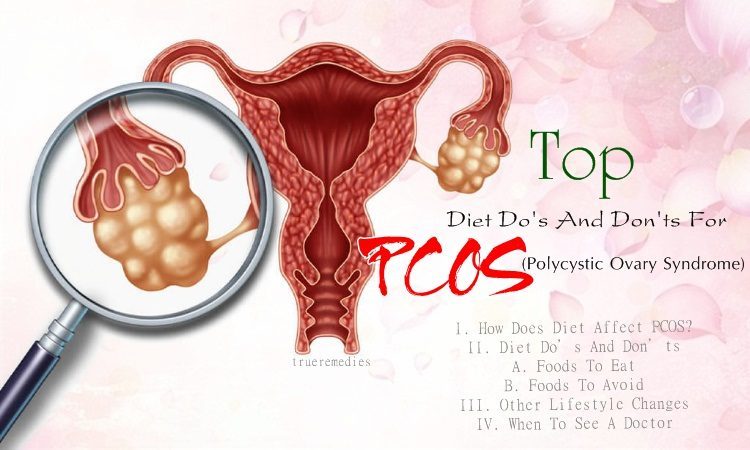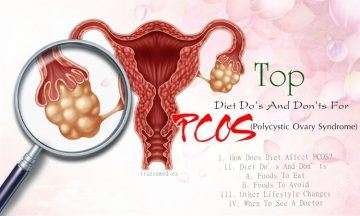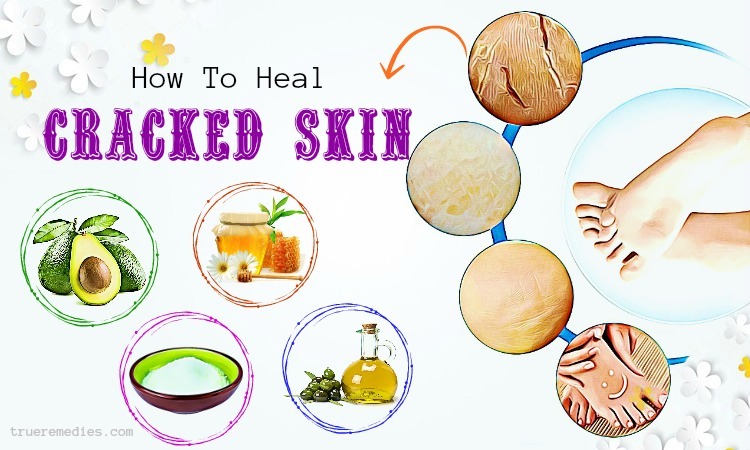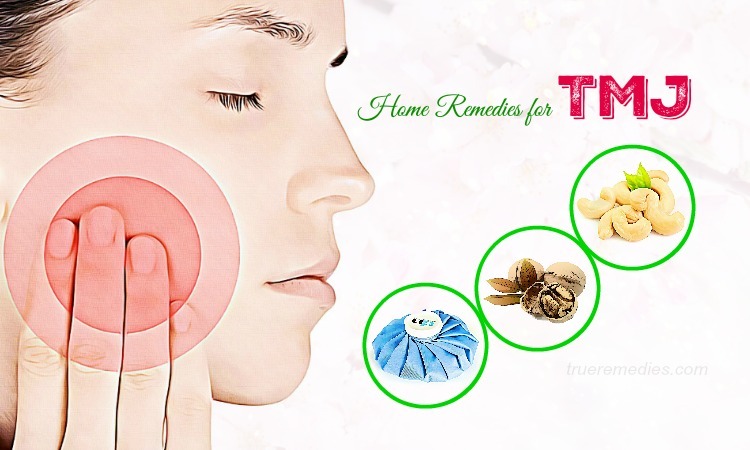Table Of Contents
PCOS (polycystic ovary syndrome) is typically earmarked by no menstruation at all or by irregular periods. Women with PCO contain many cysts in the ovaries, caused due to an overproduction of hormones known as androgens. Dealing with PCOS (polycystic ovarian syndrome) and its symptoms or signs may be quite frustrating at times. If untreated, PCOS can cause serious complications such as heart disease, high blood pressure, obesity, endometrial cancer, depression, obstructive sleep apnea, and diabetes. What you don’t eat or eat can influence the severity of PCOS symptoms. Some research has found that diet may help lower the impact of PCOS[1]. Let’s learn more about the diet do’s and don’ts for PCOS (polycystic ovary syndrome).
Top 7 Diet Do's And Don'ts For PCOS (Polycystic Ovary Syndrome): Foods To Eat And Avoid
I. How Does Diet Affect PCOS?
Insulin production and resistance and weight management are two of the main ways that diet affects polycystic ovary syndrome. Women with PCOS are usually found to have higher than normal levels of insulin. Insulin helps the cells in the body turn glucose or sugar into energy. The levels of blood sugar can increase if you do not produce enough insulin. This can also occur if you are insulin resistant.
Following a diet that meets the nutritional needs of a person, enhances good insulin levels, and maintains a healthy weight can help those with polycystic ovary syndrome feel better.
II. Diet Do's And Don'ts For PCOS
A. Foods To Eat
- Do Eat Adequate Healthy Fats: According to a study, enough supply of healthy fats such as omega-3 fatty acids may be beneficial for balancing your hormones and improving insulin levels in people with PCOS[2] [3]. Another study showed that women with PCOS who were supplemented with omega-3 fatty acids weeks improved insulin resistance by about 22%[4]. Some healthy fats are oily fish, olive oil, avocados, and unsalted seeds and nuts. However, to stay away from weight gain, you should try replacing unhealthy fats from fried or processed foods with healthy fats.
- Do Consume Plenty of Lean Protein: A lean protein-rich diet plays an important role in reducing the effects of high levels of the androgens -male sex hormones, which contributes to the unpleasant side-effects of PCOS such as irregular periods, a deeper voice, and excess facial hair. A high-protein diet reduces insulin levels and is prone to be much more filling, which can have positive impacts on PCOS symptoms[5] [6]. So, you should add plenty of healthy protein sources such as lean meat, eggs, tofu, beans, fish, and some dairy products to your diet.
- Do Consume Anti-Inflammatory Foods: Women with PCOS often have low chronic inflammation levels. This makes them more resistant to chronically fatigued, insulin, and vulnerable to gaining weight. Those with PCOS should opt for anti-inflammatory foods. Patients must eat foods that have inflammation relieving properties because inflammation may be a part of the underlying mechanism of PCOS. The regular consumption of anti-inflammatory foods is helpful for restoring the normal rhythms and processes inside your body. These foods include almonds, spinach, turmeric, and sardines.
- Do Have A Fiber-Rich Diet: A diet rich in fiber will help remove the chances of a sudden increase in the blood glucose levels and slow the digestion process[7]. Especially, these factors often help your body combat insulin resistance. Green vegetables and fresh vegetables help decrease the effects of glucose levels in the blood.
- Follow A Low-GI Diet: A low-glycemic-index diet is effective at keeping insulin levels stable. A low-GI diet contains eating foods that increase blood sugar levels gradually, which helps inhibit insulin spikes. A low-GI diet may have a lot of health benefits, particularly for people who have polycystic ovary syndrome -driven insulin resistance[8] [9]. The low-GI diet often consists of consuming whole fruits and vegetables, lean protein, healthy fats, and whole grains. In addition to this, it involves avoiding the most refined or processed carbs.
Below is a list of foods which you need to add to your diet.
- Fruits: Apple, oranges, bananas, grapefruit, cucumber, grapes, tomatoes, plum, peach, lemon, lime, pineapple, blueberries, tangerine, acai berries, and strawberries.
- Fats And Oils: Olive oil, peanut butter, rice bran oil, sunflower butter, almond butter, and edible grade coconut oil
- Veggies: Carrot, broccoli, cabbage, turnip, cauliflower, scallions, purple cabbage, Chinese cabbage, beetroot, lettuce, bell peppers, sweet potato, white potato with peel, kale, and spinach.
- Dairy: Full-fat grass-fed yogurt, full-fat non-dairy milk, feta, cheddar, buttermilk, cottage cheese, and homemade ricotta cheese.
- Nuts And Seeds: “Almond, walnut, pecan, pine nuts, macadamia, pistachios, sunflower seeds, melon seeds, and pumpkin seeds.”[9’] (Medically reviewed by Rachelle Caves, RDN, CNSC, CPT).
- Herbs And Spices: Cilantro, fennel, garlic, ginger, mint, rosemary, thyme, dill, onion, oregano, coriander, cumin, cayenne pepper, turmeric, black pepper, fenugreek seeds, white pepper, star anise, cardamom, clove, and garlic powder.
- Whole Grains: Black rice, millet, brown rice, quinoa, broken wheat, sorghum, and barley.
- Beverages: Water, coconut water, cold-pressed juices, homemade electrolyte, and freshly pressed fruit juices.
B. Foods To Avoid
- Cut Down On Carbs: Decreasing your intake of carbs may help improve the hormonal imbalance associated with PCOS and stimulate weight loss in those with PCOS. According to research, a moderate reduction in intake of carbs lowered blood insulin concentrations among females with PCOS[10]. As a result, this may improve your PCOS symptoms. A low-carb diet also helps boost weight loss[11].
- Avoid Sugary Drinks And Foods: Overconsumption of sugar is considered as one of the main reasons for insulin resistance[12]. This issue can affect and aggravate the symptoms of PCOS. So, when planning a PCOS diet, you need to exclude deep-fried snacks together with sugary drinks at all costs.
Here is a list of foods which you must avoid:
- Protein– Fatty cuts of beef and pork, soy chunks, and bacon.
- Fruits: Grapes, mangoes, jackfruit, and pineapple.
- Fats And Oils: Hemp seed oil, lard, dalda, vegetable oil, margarine, butter, and mayonnaise.
- Dairy: Low-fat milk, flavored yogurt, low-fat yogurt, and cream cheese.
- Beverages:Packaged vegetable and fruit juices, diet soda, soda, and energy drinks.
- Nuts And Seeds: Cashew nuts
- Processed Foods: Salami, ranch dip, sausage, fries bottled jams, and jellies.
III. Other Lifestyle Changes For PCOS (Polycystic Ovary Syndrome)
Like many disorders, PCOS responds positively to proactive lifestyle choices, including daily physical movement and exercise. They can help reduce insulin resistance. Daily activity, a low-inflammation diet, and low sugar intake may also aid in weight loss.
TrueRemedies Partner Solutions

Need a Help from the Leading Expert Online, Available 24/7?
They’re all here and ready to answer your questions online or by phone. Keep asking questions until you get the answer you need.
The symptoms linked to PCOS can lead to stress. Stress reduction techniques such as yoga and meditation, which help calm your mind and allow you to connect with the body, can help. Speaking with a therapist may also be helpful.
IV. When To See A Doctor
Common symptoms of PCOS include acne, oily skin, extra hair growth, irregular periods or no menstrual periods, difficulty getting pregnant, pelvic pain, and weight gain around the belly. Anyone undergoing these symptoms should discuss their problem with a doctor to look for the best treatments.
Now that you own a list of diet do’s and don’ts for polycystic ovary syndrome (PCOS), you can easily substitute harmful foods with healthy alternatives. There is no cure for PCOS. However, you may control the problems due to polycystic ovary syndrome and have a happy and healthy life by choosing the right diet or good nutrition. Speak with your doctor if your symptoms persist. For other useful posts, please go to our main News & Facts.









